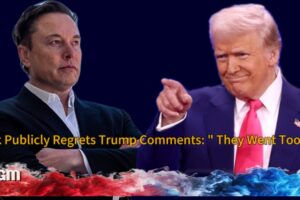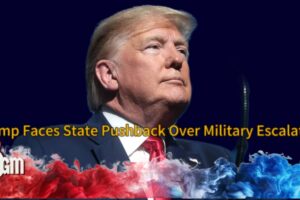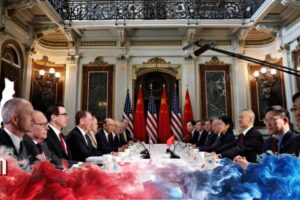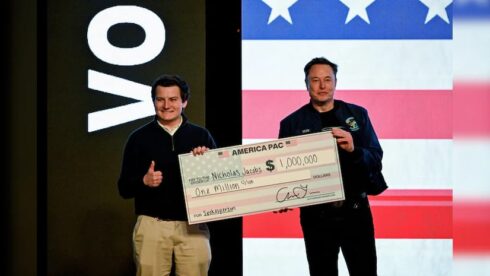Billionaire entrepreneur Elon Musk made headlines once again by injecting substantial financial support into a crucial Wisconsin Supreme Court election. On Sunday, Musk handed out two oversized $1 million checks to voters at a rally in Green Bay, marking an unprecedented intervention in a judicial race.
His actions come amid concerns that liberal candidate Susan Crawford is leading over conservative contender Brad Schimel. In addition to the million-dollar giveaways, Elon Musk announced a $20 reward for each voter recruited to support Schimel over the next two days, further intensifying an already historic and expensive judicial battle.
Musk’s justification for his financial involvement is his belief that the outcome of the April 1 election could shift the balance of the state’s highest court. “We actually are in serious danger of losing the election,” Musk declared at the rally. “We’ve got to pull a rabbit out of a hat.”
Legal Challenges and Supreme Court Ruling
The financial giveaways faced immediate legal scrutiny from Wisconsin Attorney General Josh Kaul, a Democrat, who argued that Elon Musk’s actions violated state laws against offering incentives for votes. Kaul took the case to the courts, seeking an injunction to block the disbursements.
However, Wisconsin’s Supreme Court, which has a 4-3 liberal majority, declined to intervene at the last minute. Despite Kaul’s efforts, two lower courts had already ruled in Musk’s favor, determining that his payments were not a direct attempt to buy votes but rather a means to generate grassroots political engagement. The state’s highest court refused to hear the case, effectively allowing Musk’s giveaways to proceed.
This decision echoed a similar ruling in Pennsylvania last year when a judge dismissed claims that Musk’s financial incentives constituted an illegal lottery, citing a lack of evidence.
The High Stakes of Wisconsin’s Supreme Court Race
Wisconsin’s Supreme Court election is seen as a critical battle over major legal issues, including abortion rights, labor laws, and election policies. The ideological balance of the court is at stake, and both political parties recognize its potential impact on upcoming elections, including the 2026 midterms and the 2028 presidential race.
Elon Musk and his conservative allies argue that if liberals gain control of the court, they could push for congressional redistricting that favors Democrats. “If the [Wisconsin] Supreme Court is able to redraw the districts, they will gerrymander the district and deprive Wisconsin of two seats on the Republican side,” Musk warned. He further claimed that liberal judges would attempt to obstruct Republican-led government reforms.
Elon Musk’s Deepening Political Involvement
Elon Musk’s influence in American politics has grown significantly in recent years, particularly through his financial backing of former President Donald Trump. Reports indicate that Musk spent over $250 million to support Trump’s re-election campaign, making him one of the largest individual donors in U.S. history.
His involvement in Wisconsin demonstrates his willingness to extend his influence beyond presidential races to down-ballot elections. By backing Schimel, Musk has aligned himself with conservative efforts to reshape the judiciary in a key swing state. His rally appearance, complete with a cheese hat, underscored his active campaigning for Republican causes.
Despite Elon Musk’s support, Schimel has attempted to distance himself from the billionaire’s high-profile financial interventions. Speaking to the Milwaukee Journal Sentinel, Schimel stated, “I have no idea what he’s doing. I have no idea what this rally is.”
Record-Breaking Campaign Spending and Political Implications
The Wisconsin Supreme Court race has shattered spending records, with total expenditures surpassing $81 million. Musk’s contributions, including $14 million in direct support for Schimel, have played a significant role in this surge. His financial backing has intensified scrutiny from Democratic and liberal groups, who argue that billionaires should not be able to exert such overwhelming influence on judicial elections.
Looking ahead, the newly elected Wisconsin Supreme Court justices will rule on issues with national implications, including abortion access, union rights, and electoral regulations. With Trump and Musk actively shaping the political landscape, Wisconsin’s judicial race has become a microcosm of the larger battle over America’s political future.
As voters head to the polls on April 1, the outcome will not only shape the ideological composition of the state’s highest court but also serve as a bellwether for broader political battles in the coming years.














